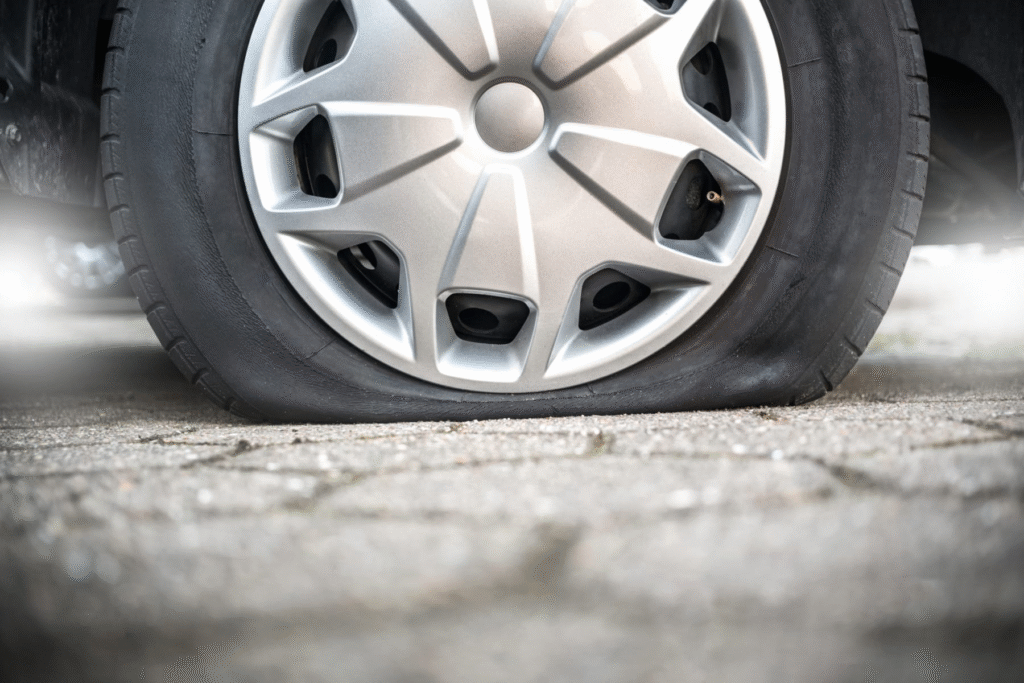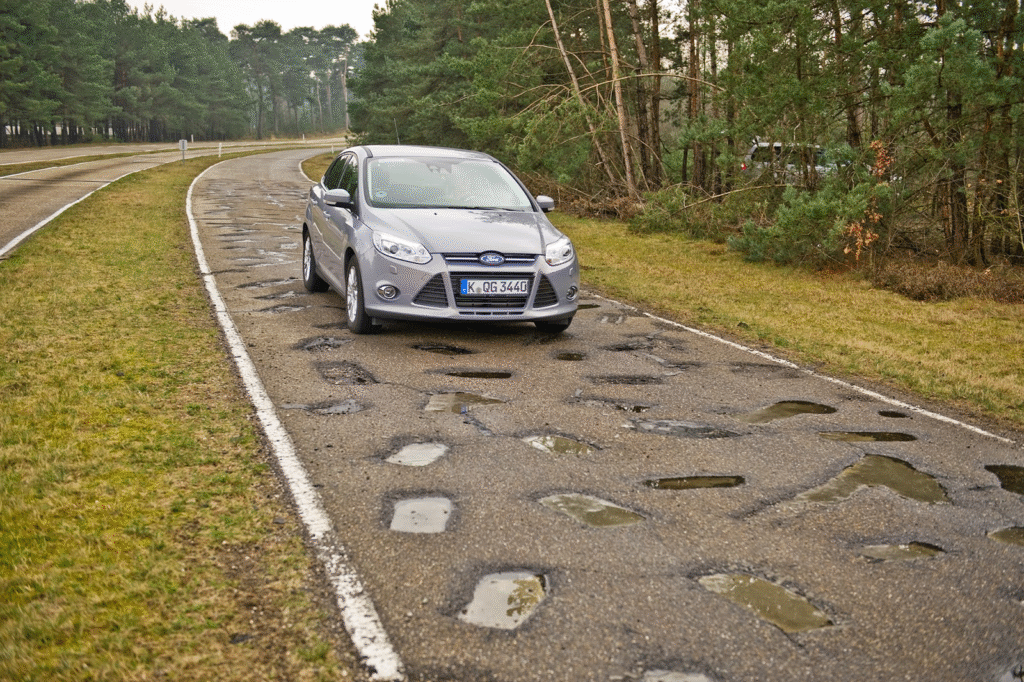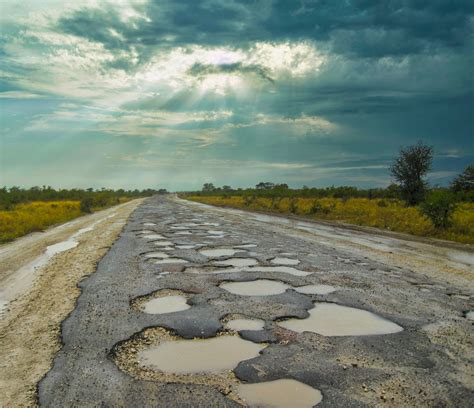Most of the roads in Ghana are rough, from uneven surfaces to potholes filled with puddles to damaged speed bumps. These roads have become an obstacle to having a car that performs flawlessly, which is what most drivers relish.
The performance of both new and secondhand cars is affected by roads with wear and tear, causing breakdowns and damage to cars that even have the best care. Unfavorable road conditions do not just affect car tires, but the entire car.
In the article below, we take a quick swipe at how bad roads can affect the health of your entire car.
The main parts of cars affected by bad roads
Tires and wheels
Since tires are the only part that comes into contact with the road surface, they are the first to suffer damage from unpaved roads because of their increased susceptibility to terrain erosion. Potholes can seriously damage tires and wheels due to their depth and sharp edges, potentially causing sidewall bulges, tire blowouts, slow leaks, and split treads. The cost of repairing these issues can be high. Since pothole damage often affects the front wheels, regular tire rotation can help distribute wear and reduce strain. Stones and sharp edges can appear suddenly, posing a serious threat to tires. Furthermore, tire replacements and maintenance can be expensive.

Underbody
Unpaved roads often lead to mud, grime, and deposits that cling to your car, causing rust and leaving unattractive scratches. The car’s undercarriage is particularly vulnerable to damage from poor roads, especially the exhaust lines, catalytic converter, and muffler. Damage to these components can negatively impact the vehicle’s performance, the engine’s operation, and the emission of pollutants that may harm the environment. Regular exposure to these materials and dirt can accelerate the deterioration of the car’s paint and increase rusting, leading to costly repairs.
Suspension and alignment
A car’s suspension system, which provides appropriate handling, control and smoothes the ride, can sustain serious damage from bad roads. For a smooth ride, the chassis, springs, and anti-sway bar—which make up the suspension system—must be in good order. Over time, potholes on poor roads can erode the suspension system, decreasing shock absorber performance and lowering control and stability. Although deep potholes can cause auto damage, such as misaligned wheels or shattered ball joints, the suspension is made to survive driving on rough roads. Wheel alignment issues can make driving challenging or impossible.
Loose steering
Unusual noises and a loose steering wheel can result from poor roads. A number of your car’s components, including the steering wheel, which is crucial for safe driving, may be impacted by these problems. It’s critical to get expert assistance as soon as you discover any damage brought on by poor roads in order to have it fixed. If you observe any problems when driving on poor roads, you should definitely get professional assistance.

Transmission
A car’s transmission system is essential for moving power from the engine to the wheels, which affects how the vehicle moves on various tracks. It entails tasks like changing gears and regulating the throttle of the engine. Frequent gear changes brought on by hilly tracks might deteriorate the car’s long-term performance and wear down mechanical components. Be mindful of the road conditions and be aware that any malfunction or breakdown can be expensive, with maintenance and replacement costs rising, in order to prevent transmission wear and stress.
Tips for car owners who regularly use bad roads
Damaged road travel frequently results in damage to tires and rims. To guarantee optimum performance, check for rim damage, such as cracks or bends, and make sure tire pressure is in line with manufacturer recommendations.
Regular checks on the brake system, including linings and discs, are crucial for maintaining safety when driving due to the increased workload caused by bad roads.
Regular suspension checks are essential to prevent wear and damage to the car’s suspension due to bad roads. If the car feels rocky or makes a squeaking sound when crossing a damaged road, it should be immediately checked by a repair shop.
Because driving on damaged roads can make the engine work harder, raising internal friction and temperatures, regular oil changes are essential for preserving engine health and preventing excessive wear.




